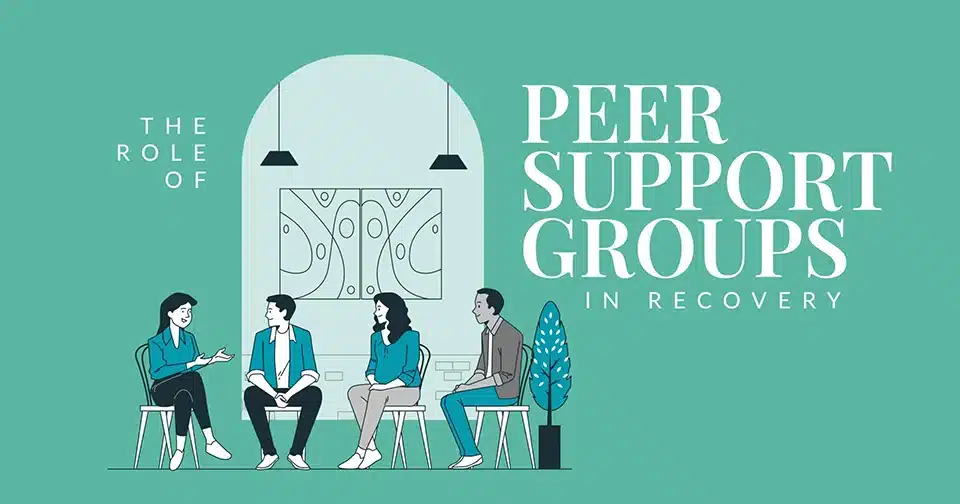In recent times, the significance of peer support groups in recovery, particularly in California, has gained considerable attention. These groups play a pivotal role in providing individuals with the necessary support, encouragement, and community to navigate their recovery journey effectively.
Peer support groups are integral to the recovery process for individuals dealing with various challenges, including addiction, mental health disorders, and trauma. In California, where these groups have seen a surge in participation, their importance cannot be overstated. This blog explores the crucial role that peer support groups play in recovery, highlighting their benefits, impact, and relevance, especially in the context of recent developments.
What are Peer Support Groups?
Peer support groups consist of individuals who share similar experiences and challenges, coming together to provide mutual support and encouragement. Unlike therapy sessions led by professionals, peer support groups are facilitated by peers who have firsthand experience with the issues at hand, creating a unique environment of empathy and understanding.
Benefits of Peer Support Groups in Recovery
1. Emotional Support
- Members receive empathy and validation from peers who understand their struggles.
- Emotional bonding fosters a sense of belonging and reduces feelings of isolation.
2. Shared Experiences
- Hearing others’ stories of recovery provides hope and inspiration.
- Learning from peers who have overcome similar challenges reinforces motivation.
3. Practical Advice and Coping Strategies
- Members share practical tips for managing cravings, triggers, and stress.
- Exchange of coping strategies enhances individuals’ toolkits for maintaining sobriety or managing mental health.
4. Accountability
- Peer accountability encourages individuals to stay committed to their recovery goals.
- Regular meetings provide a structured environment that promotes consistency.
Impact of Peer Support Groups on Recovery
Peer support groups have a profound impact on individuals’ recovery journeys, contributing to:
- Higher Rates of Long-Term Sobriety: Studies indicate that participation in peer support groups correlates with improved outcomes in maintaining sobriety.
- Reduced Relapse Rates: The ongoing support and accountability offered by peers help individuals navigate triggers and challenges effectively.
- Improved Mental Well-being: Peer support fosters a sense of empowerment and resilience, crucial for managing mental health conditions.
Peer Support Groups in California: A Growing Trend
California has witnessed a notable increase in the popularity and effectiveness of peer support groups. This trend can be attributed to:
- Cultural Diversity: California’s diverse population benefits from peer groups that cater to various cultural backgrounds, fostering inclusivity and understanding.
- Accessibility: Urban centers like Los Angeles and San Francisco offer a wide array of peer support group options, making it easier for individuals to find a group that suits their needs.
- Integration with Professional Treatment: Many treatment facilities in California incorporate peer support groups into their programs, recognizing their complementary role alongside professional therapy.
How Peer Support Groups Complement Professional Treatment
While professional therapy provides clinical expertise and structured interventions, peer support groups offer:
- Real-World Application: Insights and strategies shared by peers provide practical solutions that individuals can apply in their daily lives.
- Continuous Support: Between therapy sessions, peer support groups offer ongoing support and encouragement, bridging the gap in care.
Peer Support Groups: Answering Common Questions
What types of peer support groups are available?
Peer support groups cater to a variety of needs, including addiction recovery, mental health support (such as depression or anxiety), trauma recovery, and specific demographics (like LGBTQ+ or veterans).
How can one find a peer support group in California?
Resources such as community centers, hospitals, and online platforms like Meetup.com or local directories provide listings of peer support groups. Additionally, treatment facilities often offer recommendations.
Are peer support groups confidential?
Confidentiality is a cornerstone of peer support groups, ensuring a safe environment where members can share openly without fear of judgment or disclosure.
Conclusion
Peer support groups play an indispensable role in the recovery journey, offering empathy, shared experiences, practical advice, and accountability. In California, these groups have become increasingly vital, reflecting broader trends in mental health and addiction recovery practices. By providing a supportive community and valuable resources, peer support groups enhance individuals’ chances of sustained recovery and improved well-being. As awareness grows and stigma diminishes, the integration of peer support groups with professional treatment continues to strengthen, benefiting countless individuals across California and beyond.
By understanding the pivotal role of peer support groups in recovery, especially in dynamic regions like California, individuals can make informed decisions and access the support they need to thrive on their journey towards healing.




